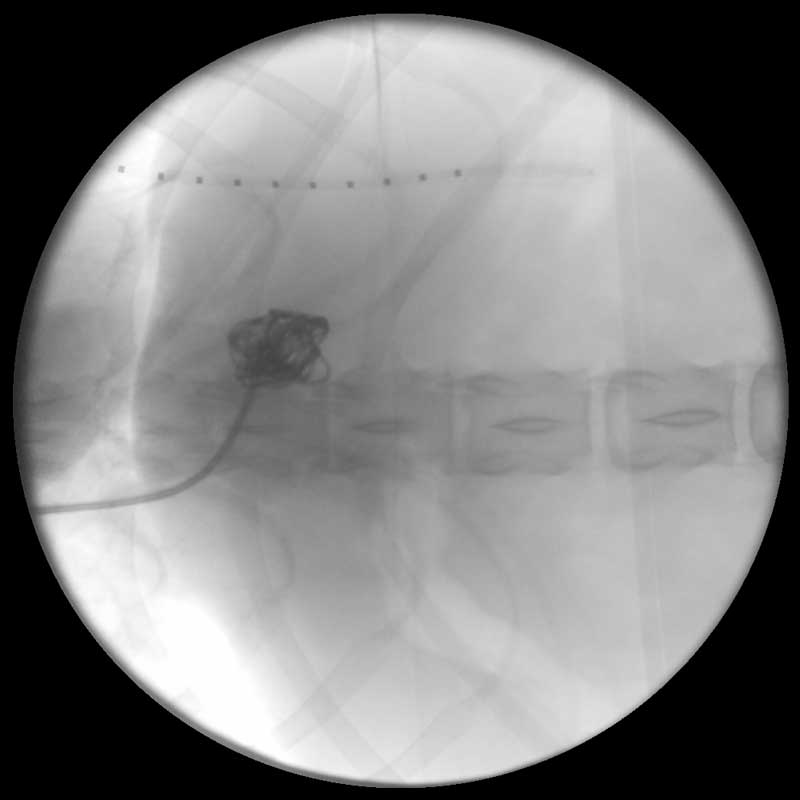2 May 2025
A vet said he is “really excited” by the potential of the new technique, which was developed in Germany.

Vet Tobi Wagner with Chester and owners Graeme and Kathryn Arthur.
A Hampshire referral hospital has become the first in the UK to offer surgery it says gives dogs with a rare liver condition the chance of a “completely normal life”.
Southern Counties Veterinary Specialists (SCVS) in Ringwood has so far treated five dogs with intrahepatic shunts, using a complex intervention technique first pioneered in Germany.
Pet owners from Northern Ireland and the Channel Islands have already travelled to the IVC Evidensia-owned practice for the treatment.
RCVS cardiology specialist Tobi Wagner said they were “really excited” by its potential, adding: “We’re expecting to see cases come here from all over the country.”
Intrahepatic shunts, where a short-cut connection between blood returning from the gastrointenstinal tract and the rest of the body occur inside the liver, are thought to affect fewer than 0.5% of all dogs.
While current treatments often don’t fully close the shunts, meaning patients need lifelong medication and special diets, the new treatment is said to close shunts in the “vast majority” of cases within two years.
Dr Wagner said: “With this new technique the patients can look forward to having a completely normal life.”
The technique has been developed by Matthias Schneider, from the University of Giessen, who has treated around 100 patients in Germany with the method and has travelled to the practice to train its clinicians.
Patients need to spend between five and seven days at the hospital after the operation, with the first 48 hours following the operation being “absolutely critical” in monitoring for any complications that arise due to bleeding.
But Dr Wagner, who worked alongside Prof Scnheider during a previous internship at Giessen, said: “I am convinced that this new technique will gradually become the first choice for closing intrahepatic shunts as it is a more modern approach to the stent and coil technique commonly used to date, with a terrific rate of positive outcomes.”
It is also hoped that Prof Schneider, who has so far travelled to the UK to perform the surgeries with Dr Wagner and his colleagues, will be able to supervise them remotely in the future.
